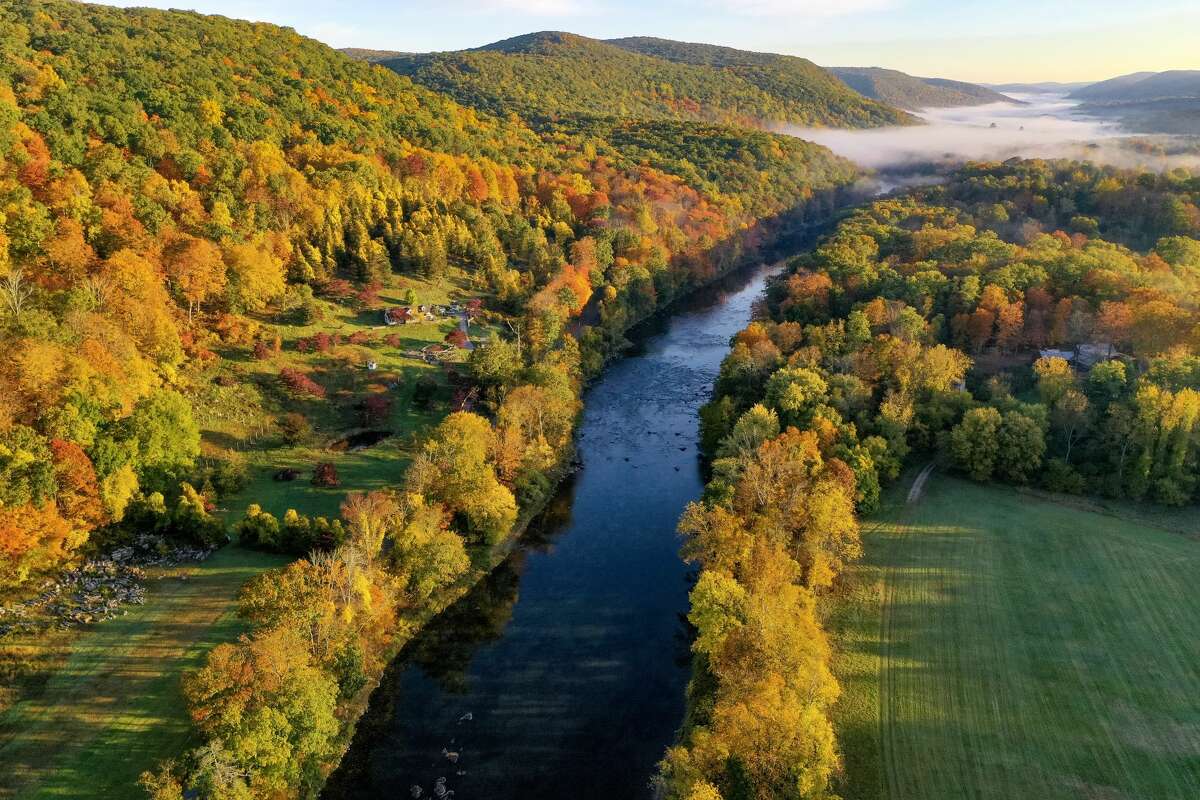
Photo:
An aerial view of the Housatonic River in Kent on Oct. 15, 2020. During the COVID-19 pandemic, many New York City residents — especially those from Brooklyn — moved to Litchfield County.
Patrick Sikes
The Litchfield Hills, a true domain of New England at its best encompasses the thousand square miles of unspoiled natural beauty, woodlands, farmlands, rushing rivers, and spring-fed mountain lakes. Nestled in the northwestern corner of Connecticut the Hills are home to the Litchfield Jazz Festival and the Litchfield Jazz Camp on the Frederick Gunn School Campus in Washington, CT.
Only 100 miles from New York and 115 miles from Boston, the Litchfield Hills is easy to get to. It is known as the area that was one of the original thirteen colonies and it remains rich today with its carefully preserved history and lore.
Edged by giant maples, picturesque roads wind their way past the green pastures, flowering apple orchards, picture perfect red barns and white clapboard houses. Historic covered bridges dating back to the Revolutionary War can still be crossed. Peaceful towns and villages founded in the 1700s seem untouched by time; steepled churches rise above manicured village greens; meticulously restored houses bespeak traditions of old; upscale shops and restaurants, country inns and B&B’s blend with gracious surroundings.
Today, travelers seeking a destination that combines the best of country pleasures, hiking and age-old sophistication find Northwest CT’s Litchfield Hills an ideal getaway. You can find centuries–old inns, take a stroll down tree shaded lanes, enjoy sophisticated delights and gourmet dining, some of the best antiquing in New England, Jazz Festivals and classical concerts by internationally famed musicians.
For more information visit discoverlitchfieldhills.com.
